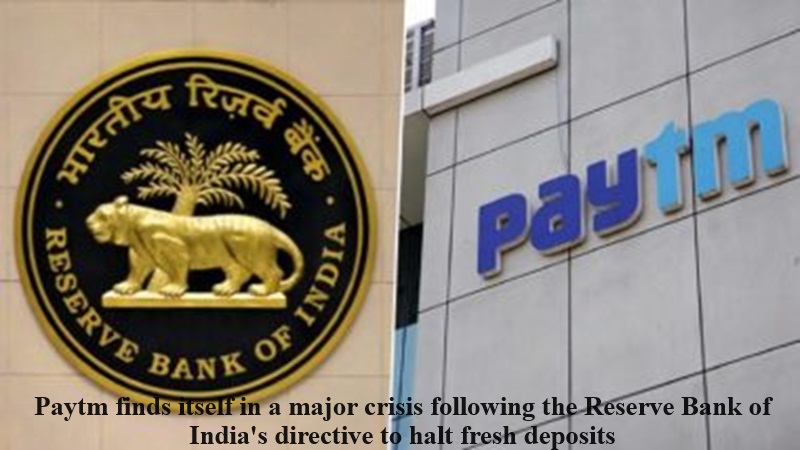
Paytm, once lauded as a prominent player in India’s payment industry, now faces a significant crisis after the Reserve Bank of India (RBI) issued a directive to halt fresh deposits in its banking unit starting March. This directive has led to a considerable drop in Paytm’s shares, raising concerns about the company’s future relations with lending partners and potentially hindering its path to net profitability.
Founded in 2010 by Vijay Shekhar Sharma, Paytm initially focused on prepaid mobile and television bill payments but swiftly evolved into a key player in online instant payments through the Unified Payments Interface (UPI), with payments becoming its primary revenue source. The ban on high-denomination notes in 2016 propelled Paytm to fame, marking a turning point for the company as online transactions surged.
Despite early success, Paytm faced challenges during its IPO launch in November 2021, raising questions about its profitability and lofty valuation. The stock currently trades about two-thirds below its listing price. Key investors, including Alibaba and Softbank, divested their stakes amid broader concerns about Chinese ownership in Indian fintech firms. In August 2023, Vijay Shekhar Sharma, once dropped from Forbes’ billionaire list, emerged as the largest shareholder by acquiring a chunk of Ant Financial’s stake.
Paytm’s revenue streams primarily rely on its merchant payment business and loan operations. About 60% of its income comes from merchant payments, with loans contributing around 20%. The company charges merchants a platform fee for using Paytm’s payment gateway and offers additional subscription-based services. Additionally, Paytm partners with banks and non-bank financial companies to provide loans, taking a cut of the interest. However, Paytm Payments Bank, a crucial entity in this endeavor, now faces uncertainties due to the recent regulatory directive.

Post Your Comments